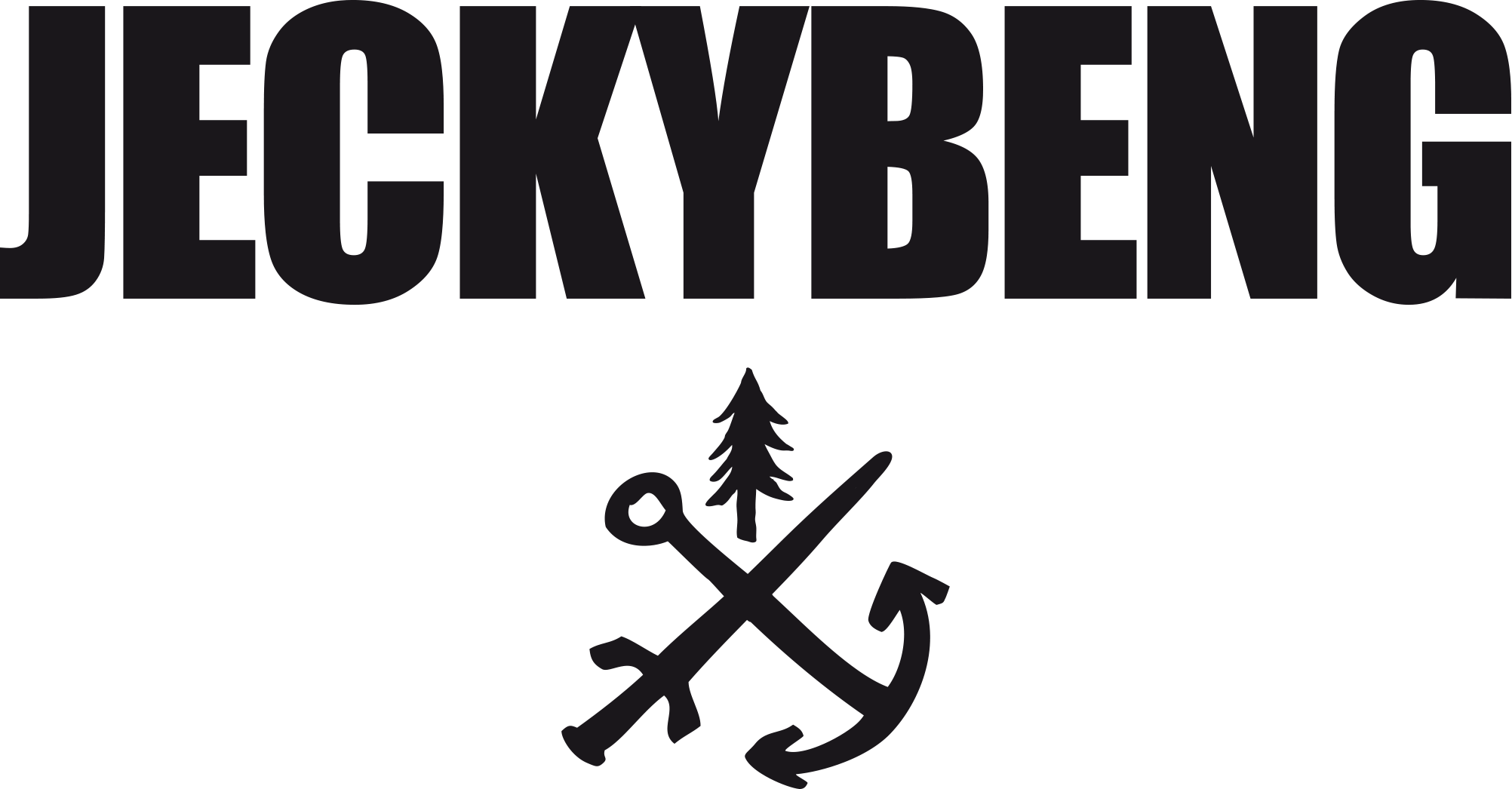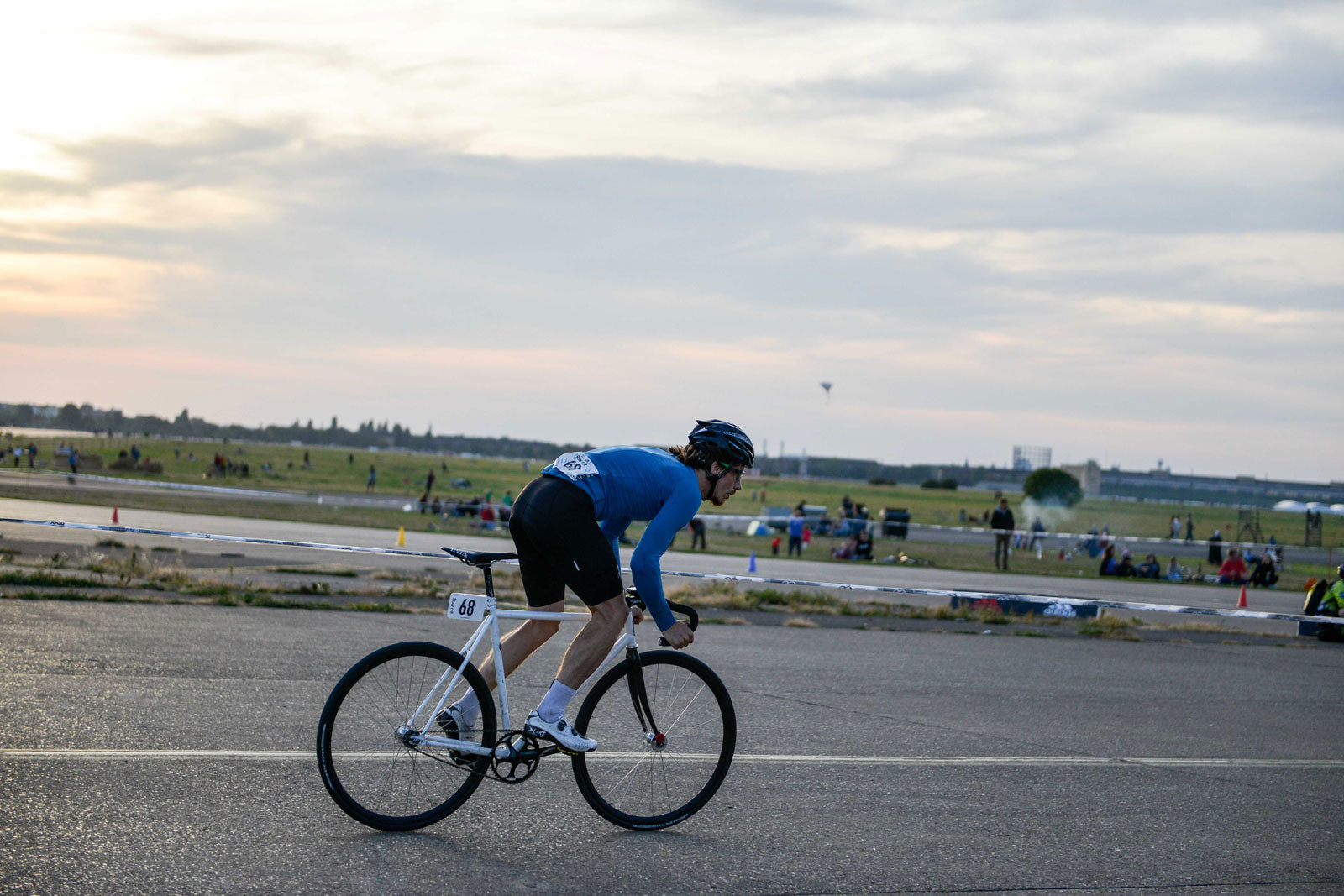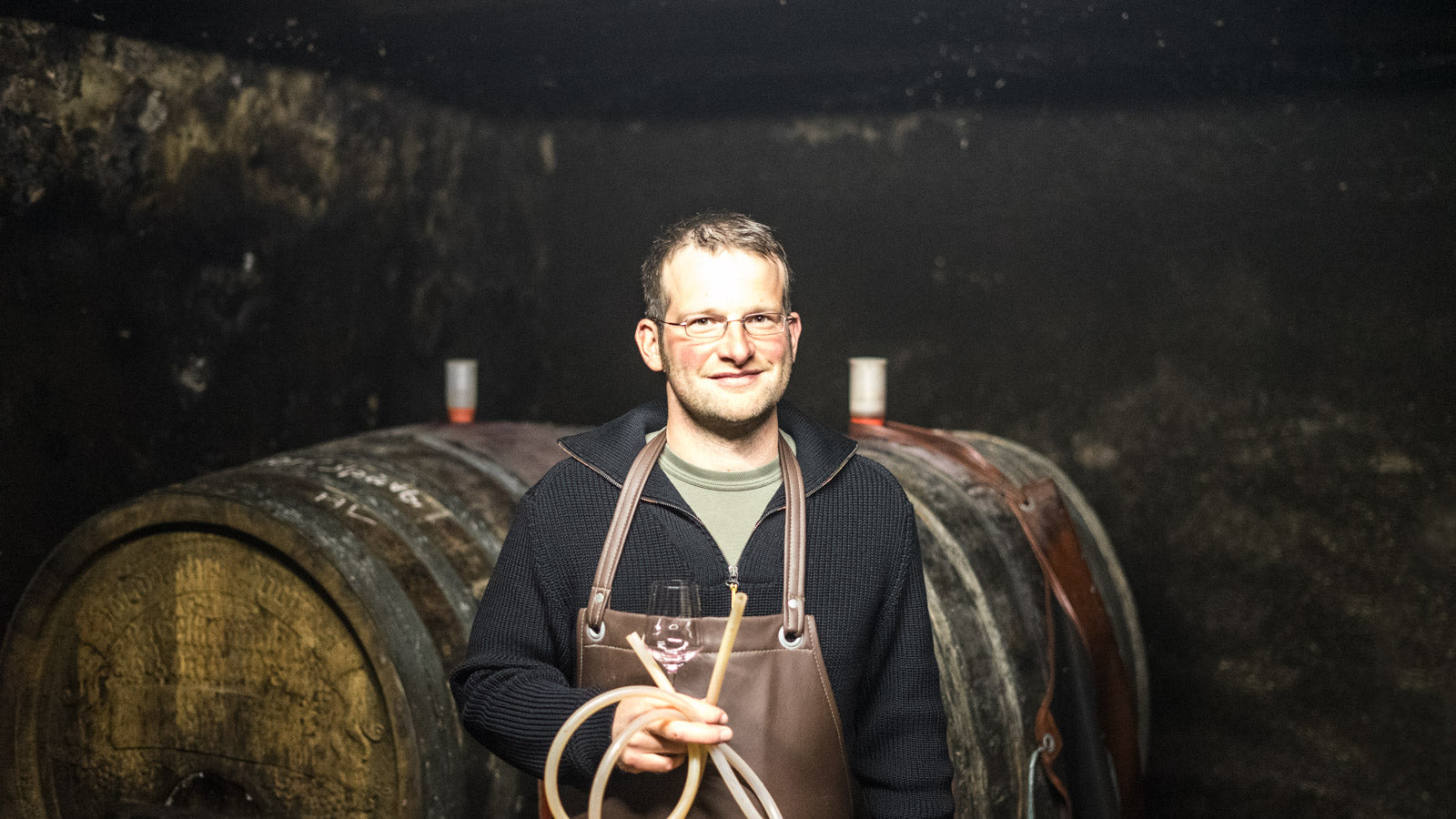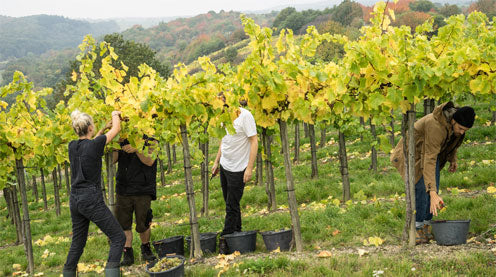JB: Could you please introduce yourself?
TLJ: I am Tony Lee Johnson, 28, born in Monchengladbach, Germany, raised in Scarborough, United Kingdom. My parents moved back to the UK when I was a few years old so north-east England and its coastline is where I still call home. I moved to back to Germany three years ago after receiving an invitation from a friend. I’m now living and working as a barista and trainer in Mainz at the Kaffeekommune. We are an award winning group of baristas working in a small shop with an additional workshop and training room. I placed 3rd in the German Barista Championships last year and won the Best Espresso in the finals.
When I’m not at work then I’m riding bikes. I race in fixed gear criteriums around Europe: fast, tight circuit races on brakeless bikes with one gear. Think track bike on a go-kart circuit and you are somewhere close. I’m also riding solo long distance tours, on my road bike, across the continent, often covering 300-400km a day. My last tour was a two-day, 680km trip from Mainz to Prague. I had a kilo of Panama Geisha in my front pack and pulled some shots at a coffee shop, Onesip Coffee, when I arrived. The contrast is about as high as you can get within the realm of cycling. The criterium circuit is high paced, aggressive and usually over in an hour, whereas endurance cycling often involves long days in the saddle and the balancing of conflicting thoughts.

JB: When and how did you find your passion for cycling and later coffee?
TLJ: My passions changed regularly whilst I was growing up. I studied hard and was rewarded with some good grades, but sports were always where I excelled. The youth culture in Scarborough was outdoor and surf dominated. I grew up with a great group of friends, the boars, and we revolved ourselves around the North Sea, spending our time surfing, swimming through caves, jumping off cliffs, chilling on the beach. I think my style and attitude towards cycling was formed through this. The coastline offered me so much and I found that this feeling continued inland with the use of a bike.
I would wear the baggiest Carhartt jeans as a kid, 36” waist and T-shirts that are still too big for me now. The idea that I would be wearing tight lycra for most of my days hadn’t even crossed my mind. The transition from loose to tight wasn’t so abrupt and is probably still why I prefer to wear an XL t-shirt, rather than a jersey, on my long distance rides. I rode Enduro whilst I was at studying at university in South Wales and made the transition to road cycling when I graduated and moved to London. I had been working as Head Soigneur for some professional road cycling teams and moved on to help out Rapha setup a coffee shop in their London flagship store. I think I met road cycling at a junction. I was looking for something new and road cycling was undergoing a massive boom in the UK. Rapha were carving a new path right through the middle of the cycling industry, making nice clothes, nice films, and it was the closest thing that I could relate to. When I started working in the marketing department, Rapha offered me a lot of opportunities to ride my bike and visit all corners of the UK.
I have some really great memories from my time at Rapha, and maybe some tinnitus after driving the old Citroen “Broom Wagon” around the country.
During this time, speciality coffee was also really starting to boom in the UK. I had worked in a coffee shop whilst I was studying to earn some cash and enjoyed the atmosphere. It is sort of an open existence where you are forced to absorb a variety of experiences. A whole bunch of different people drink and appreciate quality coffee and some wonderful characters, each with their own individual stories, walk through the door. I have made many friends through my work, and the reasons why I enjoy it continue to grow. In the past I have said some bullshit things to magazines about the link between coffee and cycling, making some tedious similes and metaphors. But in reality the link is what you want to make of it!

JB: Is there any favourite spot/country and why?
TLJ: Of course, Scarborough is always a great place to go back to. I’d recommend it to anyone. But I know that it is special to me because it is home. Now that I live inland, I make sure to visit the sea for a few weeks in the year. Hot weather doesn’t turn me on so much so I’m fonder of the milder climates. In the last few years I’ve been taking trips to Scandinavia and northern islands. I find it a very mindful and humble part of Europe. Scotland is also a magical place if you have a bicycle and don’t mind a climb or two.
JB: What makes you happy?
TLJ: A whole bunch of things. Completing a challenging project is definitely a big self-made happiness. Reading and writing continues to entertain and being with my family and friends is always a wonder. I guess everything in a mixture.

JB: What project(s) are you currently working on?
TLJ: The main project is a continued search to find a balance between riding and working, where neither dominate or are ruined by the other. This winter I am freeing up some time from working in coffee to put in a good amount of riding in and I will enter some more races next year. Some other projects are in the planning with some other companies but will wait to see what comes out from them.
I am also working on some more long distance tours with the bike to a variety of coffee shops around Europe to discuss reusability and wastage in the coffee industry. The first stage of this is research. There are some companies who are really pushing forwards in this area, but the majority are still completely unaware of the problem, let alone the existing solutions that can help and even improve their business.
I have a choice of ten different countries situated within my two day riding radius, around 700km, allowing for a choice of border crossings.
JB: How did you come up with a year of „zero waste?“
TLJ: It’s about consciousness. Waste is massively overlooked because we literally bury it under the ground or burn it. I “woke up” to the problem of waste during a cycle tour around the Netherlands. A nice couple, Peter and Petra, had offered to host me whilst I was in Utrecht and invited me to join a dumpster dive tour around the city. As a group of around 20 people, with a variety of bicycles and trailers, we made a stop at every supermarket, searched through the dumpsters, and collected fruit, vegetables, flowers, cheese, nuts, toys, clothes, etc… After the tour we returned back to the house and shared the food between everyone who was present. People were considerate and only took what they think they needed as not to repeat the waste-cycle, which left a huge amount to be shared to the homeless shelter and charities in the area. This was a mindblower! It hit me so hard that my reaction was nearly automatic. I read a lot of literature around the topic and decided to embark on a year without waste, making my own toothpaste, changing my diet, and being involved in a big sub-culture that I never knew existed. At the end of the year I had a very small pile of waste, about the size of a football that I was unable to recycle or reuse, and still have it to this day. It was an interesting time and has changed my shopping process. I am no longer completely waste-free, producing a small amount of un-recyclable waste each year, but I am more aware of what I buy and the amount I waste has reduced enormously.
I also encourage others to try it too, suggesting local scoop-shops, buying a water flask and a re-usable coffee cup. Consumer-buying influences our markets, it influences how things are produced, packaged, marketed, and sold. If more people chose the alternative to buying products that have a negative influence upon our environment then the market will have to adapt to us. The battle comes with convenience. A life without ‘something’ sounds minimal and simple, but it is often more effort and work, especially for people with children and work commitments. I don’t think that we should be punished for producing waste, rather rewarded for producing less waste, both for individuals and businesses. More incentive based initiatives would be great.

JB: Where do you see yourself in 5 years?
TLJ: I hope to have some more projects and some external backing to make some bigger projects that I would find hard to fulfill alone. There are also a few races that I’d like to do in the next few years, such as Grinduro in Scotland and The Japanese Odyssee in Japan.
I get asked quite often when will I open my own coffee shop, but I see this being much later in my life. Of course, I have constantly have ideas and concepts but I put these in to action in the places that I work rather than saving them for my own projects. Sharing is caring and it’s nice to see a good idea benefit others.
JB: Tell us something about your current home, Mainz.
TLJ: Mainz is sweet. I’ve met some creative people there that put energy in to what they do, which I appreciate. The daily riding terrain is fun, with some hills and small mountains, a few cyclocross routes and some quiet options. It also has a nice situation in Europe for endurance riding. I have a choice of ten different countries situated within my two day riding radius, around 700km, allowing for a choice of border crossings. We are living in some interesting times with regards to Nationalities and borders. The idea of the United Kingdom leaving the European Union was not so prominent when I moved to Germany and now it proposes many questions as to how people continue to live their daily lives. I see many people who were previously not interested in European or even national politics suddenly forming opinions. During every long ride I make, I see a new shade of our continent that I have not seen before. Riding through such places makes it clear that something written or said is often very temporary, just as temporary as my view of passing through. The United Kingdom has voted upon a temporary feeling that will make a very permanent change. It will take some time before we can look back clearly with twenty-twenty hindsight. I will continue to enjoy the privilege of living, working and contributing to a foreign country and to cross borders freely for as long as possible.
JB: How does a typical day in the life of Tony Lee Johnson look like?
TLJ: A working day is either spent in the shop pulling shots or doing cuppings (coffee tastings) in the Kaffeekommune. We have some great customers and sometimes it’s more like spending a day drinking coffee with friends than actually working. On the other hand, it can sometimes be a lot of work and after 9.5 hours on the feet it is difficult to find motivation to ride. But there are some short routes that are easily manageable in a few hours or sprint and hill intervals are always a last before- or after-work option.
Otherwise, my days normally start off with a nice breakfast with my girlfriend, Eleni, and then a stop off at the market for some fresh vegetables and fruit. Once I’ve ticked off my list of to-dos I will choose a bike and ride where and when I feel like. Recently I’ve structured my riding a little bit more towards my racing but it remains very open to change. I have a few different shaped bikes that help me achieve a ride that I want to do, whether it is a long distance on-road ride, a quick slip through the city, or an off-road ramble, all have their own feeling. Oh, the tandem is always an option too!
JB: What springs to mind for the following keywords?
– Social Media – Instaspam! I do it too but often question why!
– Music – Aim & QNC, African Electro, something with a rhythm that suits my mood.
– Role Model – JP Auclair, a freeskier pioneer who had an environmental ambition that continues to be pushed through many people.
– Flow – Rhythm, language, landscape.
– Adventure – I come from a family of teachers, and the idea of including adventure in to the daily lives of children is essential. So many things can be learned during adventure based activities.
Here's the PODCAST








